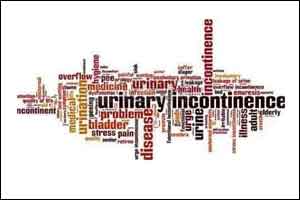- Home
- Editorial
- News
- Practice Guidelines
- Anesthesiology Guidelines
- Cancer Guidelines
- Cardiac Sciences Guidelines
- Critical Care Guidelines
- Dentistry Guidelines
- Dermatology Guidelines
- Diabetes and Endo Guidelines
- Diagnostics Guidelines
- ENT Guidelines
- Featured Practice Guidelines
- Gastroenterology Guidelines
- Geriatrics Guidelines
- Medicine Guidelines
- Nephrology Guidelines
- Neurosciences Guidelines
- Obs and Gynae Guidelines
- Ophthalmology Guidelines
- Orthopaedics Guidelines
- Paediatrics Guidelines
- Psychiatry Guidelines
- Pulmonology Guidelines
- Radiology Guidelines
- Surgery Guidelines
- Urology Guidelines
European Association of Urology updates guidelines on urinary incontinence

The European Association of Urology has updated guidelines on urinary incontinence (UI) with successive major chapters being revised each year. The sections on assessment, diagnosis, and nonsurgical treatment have been updated as of mid-2016.These guidelines aim to provide sensible and practical evidence-based guidance on the clinical problem of urinary incontinence.A condensed version of the full guideline on assessment and nonsurgical management of UI, with the aim of improving accessibility and increasing their dissemination, has been presented.
Urinary incontinence is a very common condition which negatively impacts patient's quality of life. Several types of incontinence exist and since the treatments will vary, it is important that the diagnostic evaluation establishes which type is present. The diagnosis should also identify patients who need rapid referral to an appropriate specialist.
These updated guidelines provide an evidence-based summary of the assessment and nonsurgical management of UI, together with a clear clinical algorithm and action-based recommendations. Although these guidelines are applicable to a standard patient, it must be remembered that therapy should always be tailored to individual patients’ needs and circumstances.

Disclaimer: This site is primarily intended for healthcare professionals. Any content/information on this website does not replace the advice of medical and/or health professionals and should not be construed as medical/diagnostic advice/endorsement or prescription. Use of this site is subject to our terms of use, privacy policy, advertisement policy. © 2020 Minerva Medical Treatment Pvt Ltd